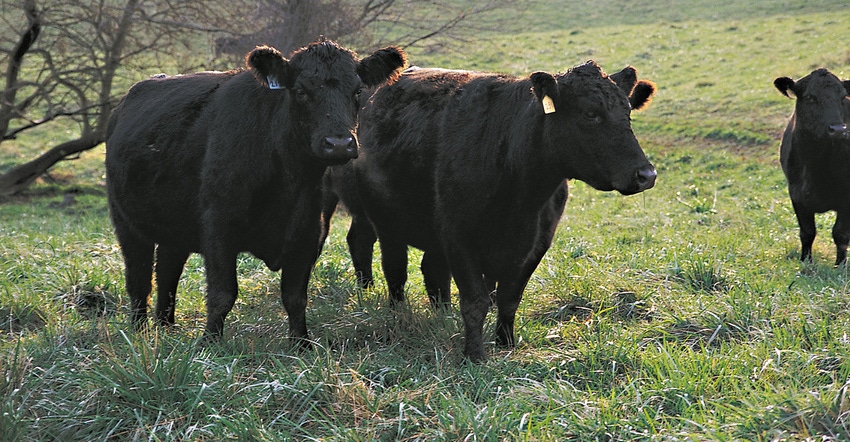January 5, 2018

By Sam Smith
As always, there are seemingly lots of changes on the horizon for cattlemen. Some changes involve management decisions and will be made by choice. Others will soon be required to simply continue to have market access. As we move into 2018, the Ohio State University Extension Beef Team has made plans to focus programming on the practices cattlemen will need to embrace in order to ensure they maintain access to every available market.
For years we've talked about the need for producers to be willing to implement practices such as pre-weaning, dehorning, a vaccination program, and having calves castrated and healed to add value to their calf crop. Today, we are hearing with more and more frequency that these practices may no longer gain a premium, but will soon be required by the marketplace to simply avoid discounts. Fact is, the feeder calf market now commonly experiences an 8- to 12-cent discount on small groups of calves that haven't been through a weaning and conditioning program.
Last year, beef trade with China was opened for the first time in years. However, it comes with the requirement that beef originate from cattle that are age and source verified. The voluntary tagging and tracking systems we've talked about for at least the last 15 years have now become a key that allows cattlemen access to that market.
Pork producers have for years been required to maintain their Pork Quality Assurance certification to access markets. Now, Wendy's has announced that beginning next year they will require any beef they purchase to originate from cattlemen who have a current Beef Quality Assurance certification. Following the lead set by the pork industry over the past several years, and also now Wendy's as it relates to the beef cattle industry, one must assume that Wendy's is likely only the first of several who will soon require producers be current with their BQA certification.
Another piece of the equation that relates directly to sustained profitability in the beef cattle industry is the continued growth in demand for beef product resulting from branded, high-quality programs. As one example, despite earlier this decade experiencing the highest beef prices the world has ever seen, 2017 marks the 13th consecutive year of growth for the Certified Angus Beef brand. While reputation fed, carcass merit cattle have long been rewarded in the local market place. It's not hard to imagine that documented genetic merit cattle being delivered to the marketplace may soon become the next step in the progression for meeting consumer demand for high quality beef that originates from branded programs.
As this winter progresses into spring, programming efforts of the OSU Extension Beef Team will focus on maintaining market access while delivering the kind of cattle that are in demand. This includes a renewed effort to get Ohio’s cattlemen BQA certified, teaching the value of weaning programs that can help insure calf health, and the longer range value of breeding and management programs that result in high-quality beef at the time of harvest.
The action plan is to offer pre-recorded presentations to county Extension educators to utilize for programs at the convenience of those in the county. The hope is that this format will reach more total cattlemen than the fixed time webinar format of recent years.
The first of these pre-recorded presentations will be available in early February. In total, there will be two or three, 30-45 minute presentations (totaling approximately 90 minutes) that follow the theme of “Gaining Greater Market Access for Ohio Feeder Calves.”
After these initial presentations have been offered, they will be followed up by offering BQA trainings within local Extension meetings hosted by Extension educators, as well as being offered at auction markets and cattle collection points.
If interested in these presentations, participating in BQA certification and retaining a front row seat to the quickly changing economic realities of the beef cattle industry, contact your county Extension educator and ask about the dates, times and locations that these programs will be offered in your county.
Smith is a Program Assistant in the Fairfield County OSU Extension office, and a member of the OSU Extension Beef Team. The Beef Team publishes the weekly Ohio BEEF Cattle letter that can be received via email or found at beef.osu.edu.
You May Also Like




